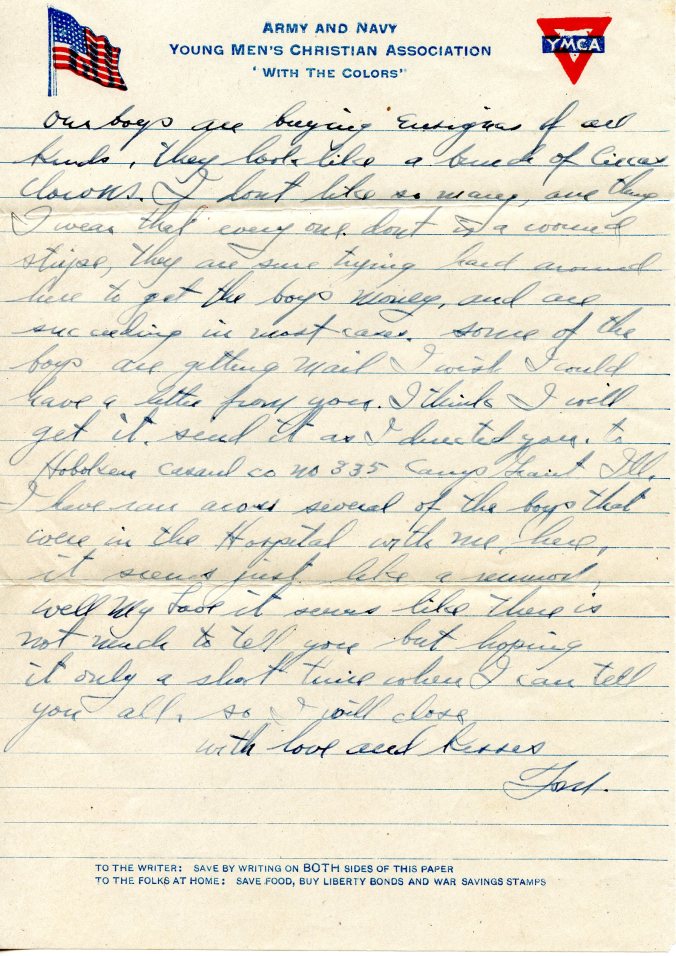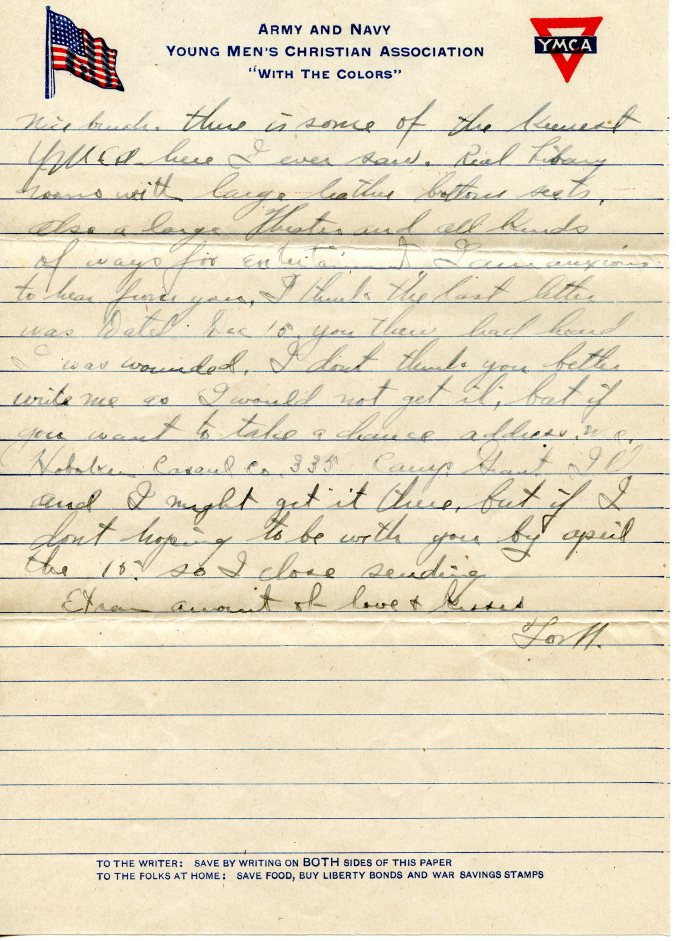I want to begin this post with an explanation of my absence. We’ve been fixing up our old house. My thoughts (and sometimes my laptop) disappeared into the dust and chaos that disturbed our lives for weeks. Grandpa would have understood. I remembered these old photographs and realized what a metaphor it offered for the thoughts I share below.
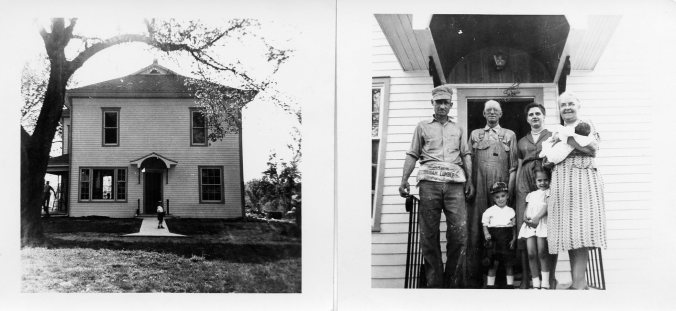
My grandparents’ home in Effingham, Kansas, 1952.
In 1952, Grandpa and Grandma fixed up this house in Effingham, Kansas. It’s the house I associate with them and all the many wonderful days I spent there. Next to Grandpa is a workman, and on his other side, my mother, Grandma with me as a baby, and, in front, my brother and sister. At the time, my grandparents ran a lumber yard. They knew their way around construction. They knew how to fix things up.
These were the kind of skills they needed in 1919, after Grandpa came back from war. Their wartime romance was falling apart and, I suspect, they didn’t have the tools they needed to repair it, at least not initially. In my last post, I introduced Stanley Brown as one possible cause for the tension. Here, I want to explore another, namely Grandpa’s need to make sense of his war experience. He wasn’t the same man who had left this small town 17 months earlier. My grandparents couldn’t build a life together, I think, until Grandpa rebuilt his own. He did that work, in part, by going public with his stories of war.
Grandpa returned to King City on April 9, 1919, arriving unannounced. “I don’t want the people to make a fool of me at the train,” he wrote Grandma in a letter dated April 5. He succeeded in staying under the radar, but only for a short week.
On Friday, April 18, word spread through King City that Maurice Sealy—one of Grandpa’s war buddies—was arriving on the evening train. A band assembled at the station. Rufus Limpp, a prominent businessman, arrived in his “big truck” (so named by the newspaper) and drove Sealy through cheering crowds to the reception up town. Judge Sullinger was providing welcoming remarks when someone interrupted him, pointing to Grandpa in the crowd.
This young man came forward and was invited to take his place on the truck that he, too, might be given a recognition even if a little late. Then three hearty cheers were given for the returned heroes. . . The talks by the returned soldier boys were listened to with marked attention and interest. We hope to hear from them again. King City Chronicle, April 25, 1919, p l.
That impromptu talk was the first of several Grandpa gave that spring and summer. On May 2, after the morning train delivered “professor” Finley, a high school teacher, the ritual repeated itself, with the band playing patriotic songs and Rufus Limpp providing transportation in his “big truck” to the site of the reception, this time the auditorium of the high school. Returning soldiers Finley, Ferris Keys, Paul Turner, and Grandpa were all invited to speak. After the others declined, Grandpa took the stage and stole the show.
Thos. Alderson made a splendid and much appreciated talk, giving quite an outline of his war experiences, and it was listened to very attentively. He told the story so interestingly that we wish thousands could have heard it. Chronicle, May 9, 1919, p 1.
As the “presiding officer” at the 4th of July festivities, Grandpa spoke on behalf of the soldiers in attendance.  “Thomas Alderson always pleases his audience and he did so again on this occasion.” Chronicle, July 4, 1919, p. l.
“Thomas Alderson always pleases his audience and he did so again on this occasion.” Chronicle, July 4, 1919, p. l.
I sense from these newspaper accounts that Grandpa enjoyed telling his war stories to the people he knew around town. He also–and perhaps unwittingly–participated in government efforts to get these same people to pay war debts. In May, for example, he agreed to give a talk at “Victory Day,” a fund-raising event for the fifth and final Liberty Loan drive. Here’s an ad for that campaign. Grandpa’s name appears, lower left, on the list of “reported wounded.”

Chronicle, April 18, 1919, p. 3.
I try to picture my grandfather as a small-town celebrity. Did he enjoy that attention? It’s hard to say, but maybe he did. I wonder, though, if he really liked being cast as a hero. How did he respond to the patriotic language used in this ad?
Sixty thousand Americans died in this war. The bravest and the best we had. They gave all they had for their country. Our country. They gave it gladly. It is our sacred duty to see that these dead shall not have died in vain. We must carry on the task they left for us. We must pay our share of the cost of Victory. Their share is paid.
More certain to me is Grandpa’s affection for the men he served along in battle. On June 4, he went to Kansas City to attend what the Chronicle called the “great home-coming welcome and reception” for members of the 89th Division. Grandpa wrote about this trip in the one surviving letter I have from this time.



Kansas City, Mo
Sat morn
My Dear Inis, I know you think I am mean the way I am staying away, and I kinda think so myself, I intended coming home today but they talked me in the notion of staying over until Mon as my co will be here then with the 356th Inf. I am not doing much running around just taking it easy, am going to the ball game this afternoon. I hope it has dried up at home by now, or by the time I get there. I stay in St. Joe Wed night and Thurs. Saw Lieut. Carson on the street was glad to see him, also heard that Harry Carder was in the states. Well I think I will be home Mon or Tues and I will try and get down and fuss with you as I believe you were feeling that way when I talked to you Wed, from town.
so I close with Love
Tom.
This letter suggests to me that Grandma felt over-looked. 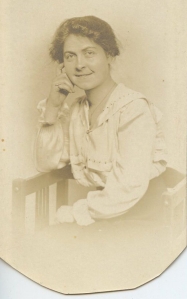 She wanted “fussing,” Grandpa’s word for paying her some attention. While Grandpa was making sense of his war experience through speeches and reunions, I imagine Grandma was sorting out her own feelings, including her expectation that they would been engaged by now.
She wanted “fussing,” Grandpa’s word for paying her some attention. While Grandpa was making sense of his war experience through speeches and reunions, I imagine Grandma was sorting out her own feelings, including her expectation that they would been engaged by now.
One day, or maybe over a couple of days, those feelings came back to her in an unexpected and haunting way. In the mail, she received two letters she had written Grandpa in February, when he was still in France. Those letters, which I posted on March 9, 2019, had gone to France and then come back to Camp Funston, Kansas, in search of Grandpa. He never read these letters, but now she would, again.
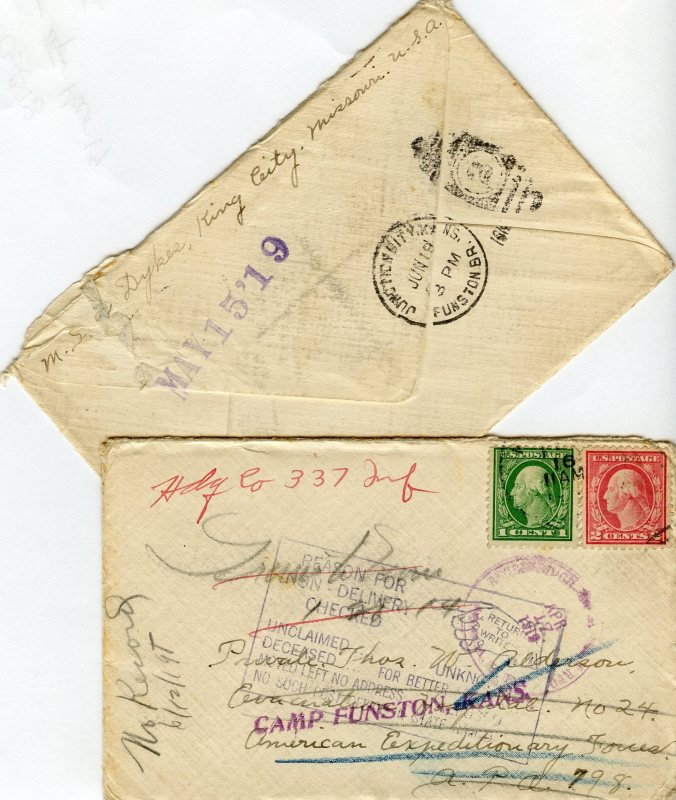
Two letters came back to Grandma, one (above) postmarked June 20, from Junction City (Camp Funston) and the second (below), postmarked on reverse, June 19, also from Funston.
Grandma wrote in one about her friends’ happiness when a boyfriend or husband returned. “Believe me it is one happy one I’ll be when you come home too.” She wrote about how busy she was with her mother away. “But any way I like it, the experience I’m getting.” Grandma was ready to welcome Grandpa home, and start housekeeping. That’s how I understand these passages.
In the other letter, written just two days later, she referred to something Grandpa had written.


February 16, 1919 letter Grandma sent to Grandpa, returned mid-June.
In your letter you spoke about taking a sleigh ride or that a Ford wouldn’t be bad. Well so far as that is concerned it wouldn’t make any difference how we were going just so it was you I was with, or whether we were going any place at all.
She folded the letters and slipped them back in the envelopes. She put them in the box with all the others, tied with a string. Did she feel sad at these memories, so sweet, so certain? Or did anger cloud her feelings at a time she felt he was pushing her away? In less than two weeks, on July 3, Grandpa would make what he later described as “the mistake of my life.” The damage would take months to repair, and require tools to understand how the war had changed them, as individuals, and changed the kind of future they dreamed of building, together.

Photo by Charlene Reichert.
Continue reading →


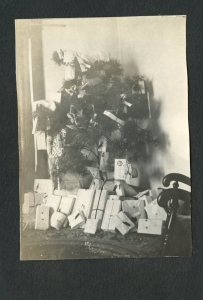

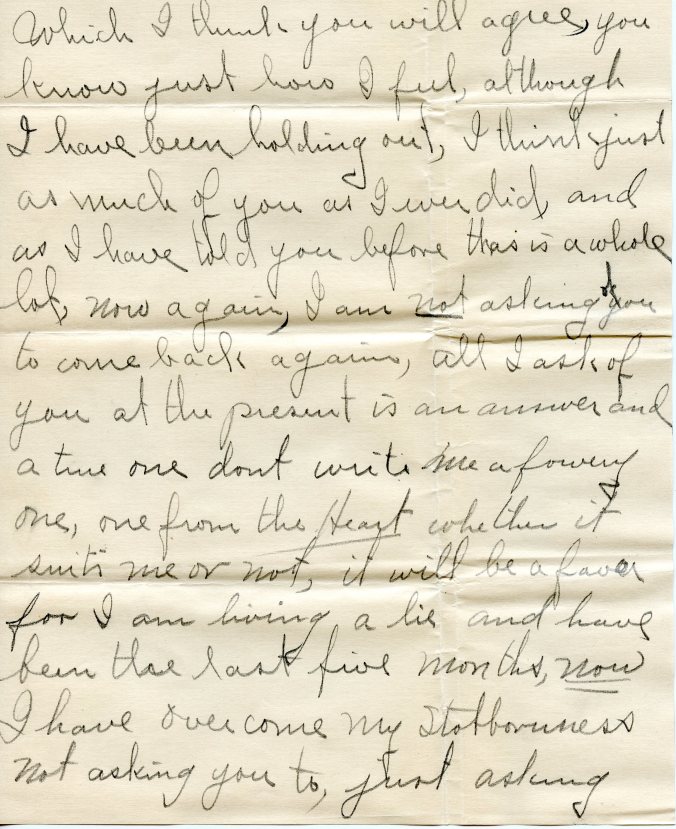





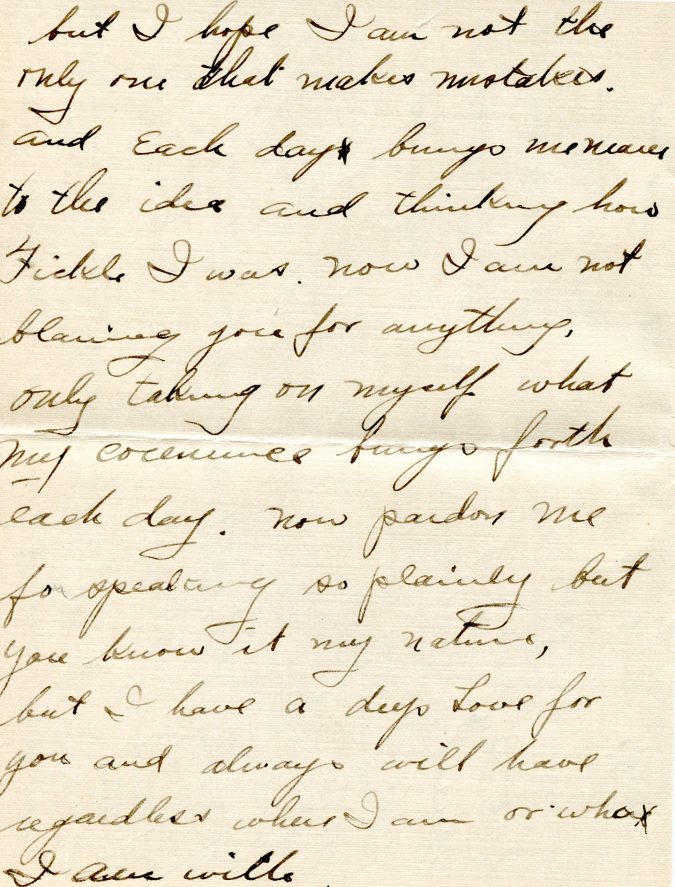
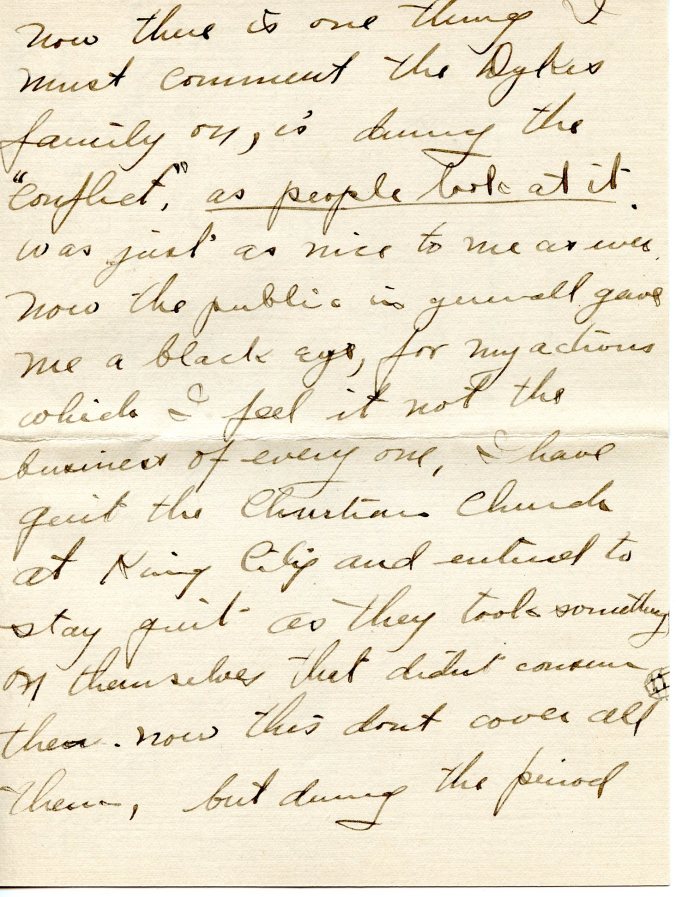

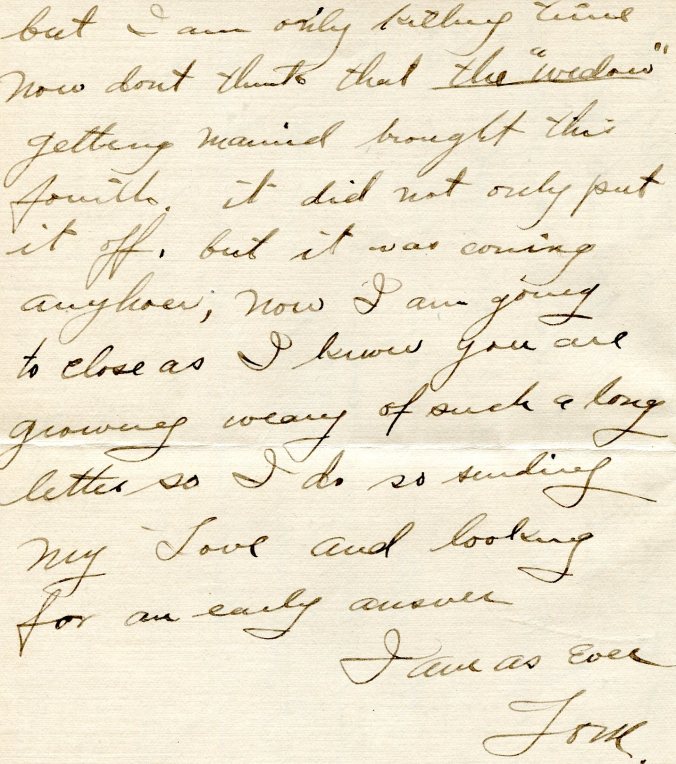



 “Thomas Alderson always pleases his audience and he did so again on this occasion.” Chronicle, July 4, 1919, p. l.
“Thomas Alderson always pleases his audience and he did so again on this occasion.” Chronicle, July 4, 1919, p. l.



 She wanted “fussing,” Grandpa’s word for paying her some attention. While Grandpa was making sense of his war experience through speeches and reunions, I imagine Grandma was sorting out her own feelings, including her expectation that they would been engaged by now.
She wanted “fussing,” Grandpa’s word for paying her some attention. While Grandpa was making sense of his war experience through speeches and reunions, I imagine Grandma was sorting out her own feelings, including her expectation that they would been engaged by now.





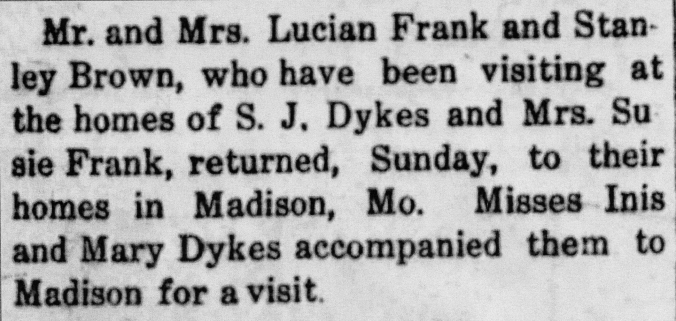
 The simple caption, “interior view of dormitory,” leaves the meaning of this image up to the imagination. It appeared in the booklet, Souvenir of Camp Grant, Ill. and presumably shows a dormitory there. But I’ve run across other commemorative booklets of training camps that have similar (often identical) images of life at camp–the dormitory, mess hall, recreation facilities, scenes of physical activities and military drills. Most of these souvenir booklets were published in late 1917 or early 1918.
The simple caption, “interior view of dormitory,” leaves the meaning of this image up to the imagination. It appeared in the booklet, Souvenir of Camp Grant, Ill. and presumably shows a dormitory there. But I’ve run across other commemorative booklets of training camps that have similar (often identical) images of life at camp–the dormitory, mess hall, recreation facilities, scenes of physical activities and military drills. Most of these souvenir booklets were published in late 1917 or early 1918.












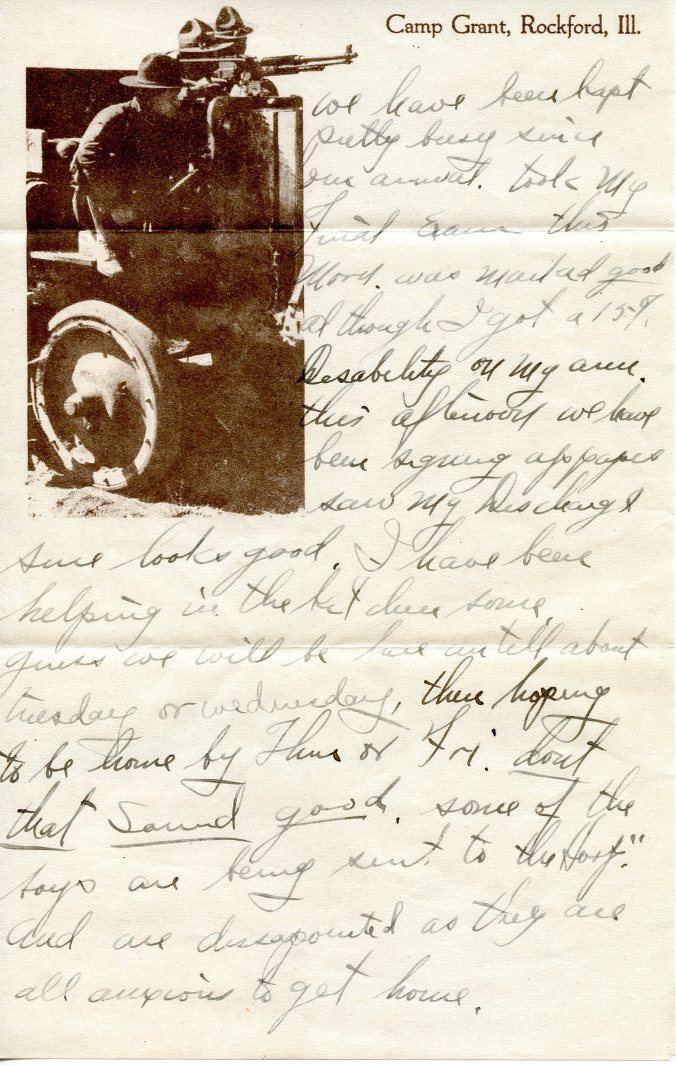
 Camp Grant, Rockford, Ill.
Camp Grant, Rockford, Ill.








